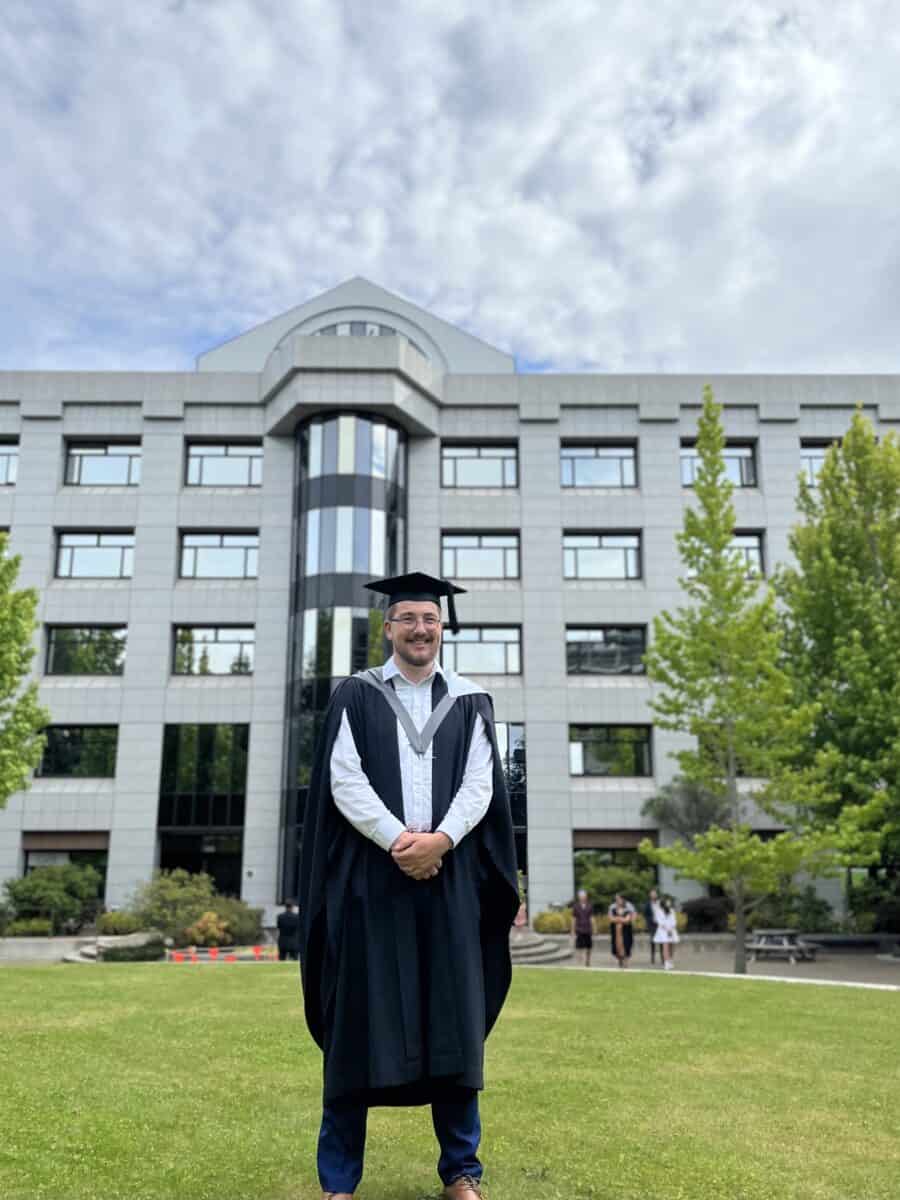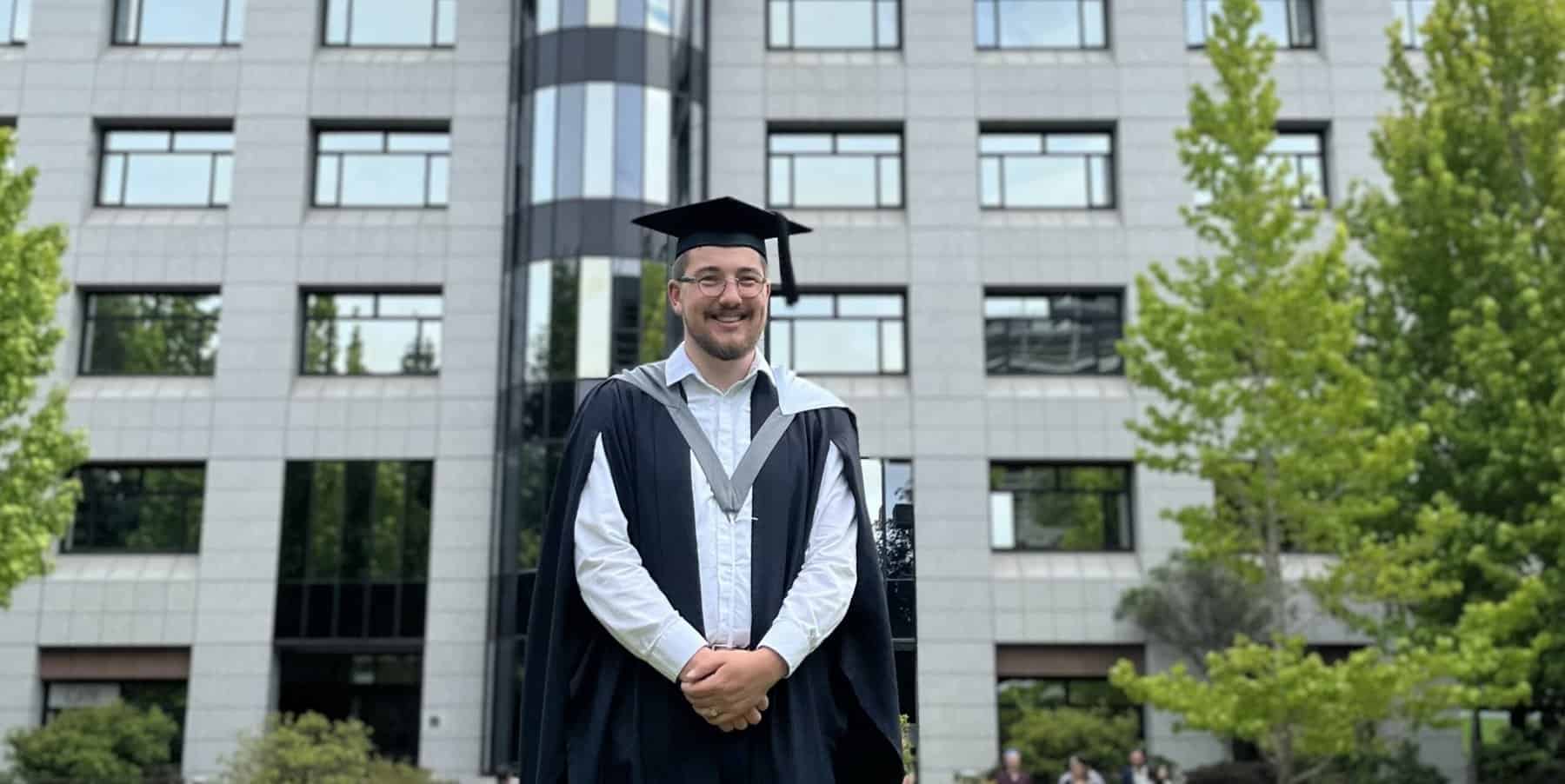As Liam was finishing up his Bachelor of Laws in 2022 at the University of Canterbury, he came across a Master’s scholarship to critically analyse the coherence of New Zealand’s approach to biosecurity.
“This scholarship interested me because growing up, I’ve always been quite keen on the outdoors,” says Liam. “I do a lot tramping and fishing, and I used to sail when I was younger. To be able to review and get involved in an impactful way with the things that regulate and keep safe a lot of what I enjoy was an exciting opportunity.”
With the help of his supervisors, Professor John Hopkins and Dr. Sascha Mueller, Liam narrowed his Master’s to focus on how/whether New Zealand’s approach to biosecurity addresses environmental considerations and how this is reflected in the risk analysis process.
“I’m addressing five main pieces of legislation, including the Biosecurity Act 1993,” says Liam. “I’m specifically interested in seeing whether environmental considerations are given as much weight as economic considerations in legislation and decision-making.”
His hypothesis is that there will be evidence of environmental considerations being overshadowed by economic considerations.
“At this stage of my analysis, it doesn’t look like environmental considerations are completely kicked out of the decision-making process, but they definitely aren’t given as much weight as economic considerations.”
One legal case study that Liam is analysing is about kiwifruit. In 2009, the Ministry of Agriculture and Forestry (now the Ministry of Primary Industries) granted a permit for a shipment of kiwifruit pollen to be imported into New Zealand to help growers with pollination.
“There was a requirement for the pollen to be inspected for any harmful organisms, but for some reason this requirement was left out of the import permits,” says Liam.

Because of this oversight, pollen that contained a strain of Pseudomonas syringae pv actinidiae (Psa) spread throughout kiwifruit orchards in the Bay of Plenty and Northland. Psa is a bacterial disease that causes cankers on kiwifruit vines—the incursion cost millions, including damages to kiwifruit growers and lost income to kiwifruit packers.
Liam believes this raises some questions about priorities under the biosecurity regime.
“I need to look more into it, but I believe there may be a systemic focus on economic rather than environmental factors.”
Liam finishes his Master’s in May 2024 and already has ideas for what he’d like to do next.
“My Master’s looks at the national context, but I think it would be good to look at the international context through a doctorate.”
Liam sees a doctorate as a vehicle for evaluating whether the priorities identified during his Master’s are unique to New Zealand or whether they are reflected internationally.
If he doesn’t do a doctorate, his next step will likely be towards policy.
“I’m interested in going into policy making and having a real-world impact.”
Liam Cartwright
While those two options are on his mind, he’s looking forward to focusing on his Master’s for now and enjoying the process of discovery.
“There isn’t a lot written that critically evaluates our biosecurity framework,” says Liam. “That’s one of the reasons why I’m finding it such an interesting area. There aren’t too many constraints on what I can research, as long as I don’t get too out of focus from what my thesis is about. It’s still a new area and I can still explore it a bit myself.”
Jenny Leonard
